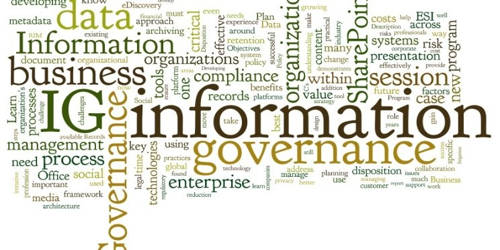Information governance, or IG, is the overall strategy for information at an organization. It is key in this technologically dominated business world. Information governance balances the risk that information presents with the value that information provides. It is a holistic approach to managing corporate information by implementing processes, roles, controls, and metrics that treat information as a valuable business asset.
Information governance helps with legal compliance, operational transparency, and reducing expenditures associated with legal discovery. An important goal of this governance is to provide employees with data they can trust and easily access while making business decisions. An organization can establish a consistent and logical framework for employees to handle data through their information governance policies and procedures. In many organizations, responsibilities for data governance tasks are split among security, storage, and database teams. These policies guide proper behavior regarding how organizations and their employees handle electronically stored information (ESI). It includes the processes, roles, and policies, standards and metrics that ensure the effective and efficient use of information in enabling an organization to achieve its goals. It should include fundamentals regarding an online presence, an online customer experience, and social media direction.
Information governance encompasses more than traditional records management. It is an enterprise’s strategic approach to managing its information, whether in digital data, documents, or archival records, in order to support business outcomes. Companies are investing in different aspects of business practices to acquire and maintain more customers, increase revenue, and reduce costs. It incorporates information security and protection, compliance, data governance, electronic discovery, risk management, privacy, data storage and archiving, knowledge management, business operations, and management, audit, analytics, IT management, master data management, enterprise architecture, business intelligence, big data, data science, and finance. It can involve a wide range of cross-disciplinary policies, procedures, controls, tools, and technologies that help a company meet regulatory, legal, and operational demands.
















